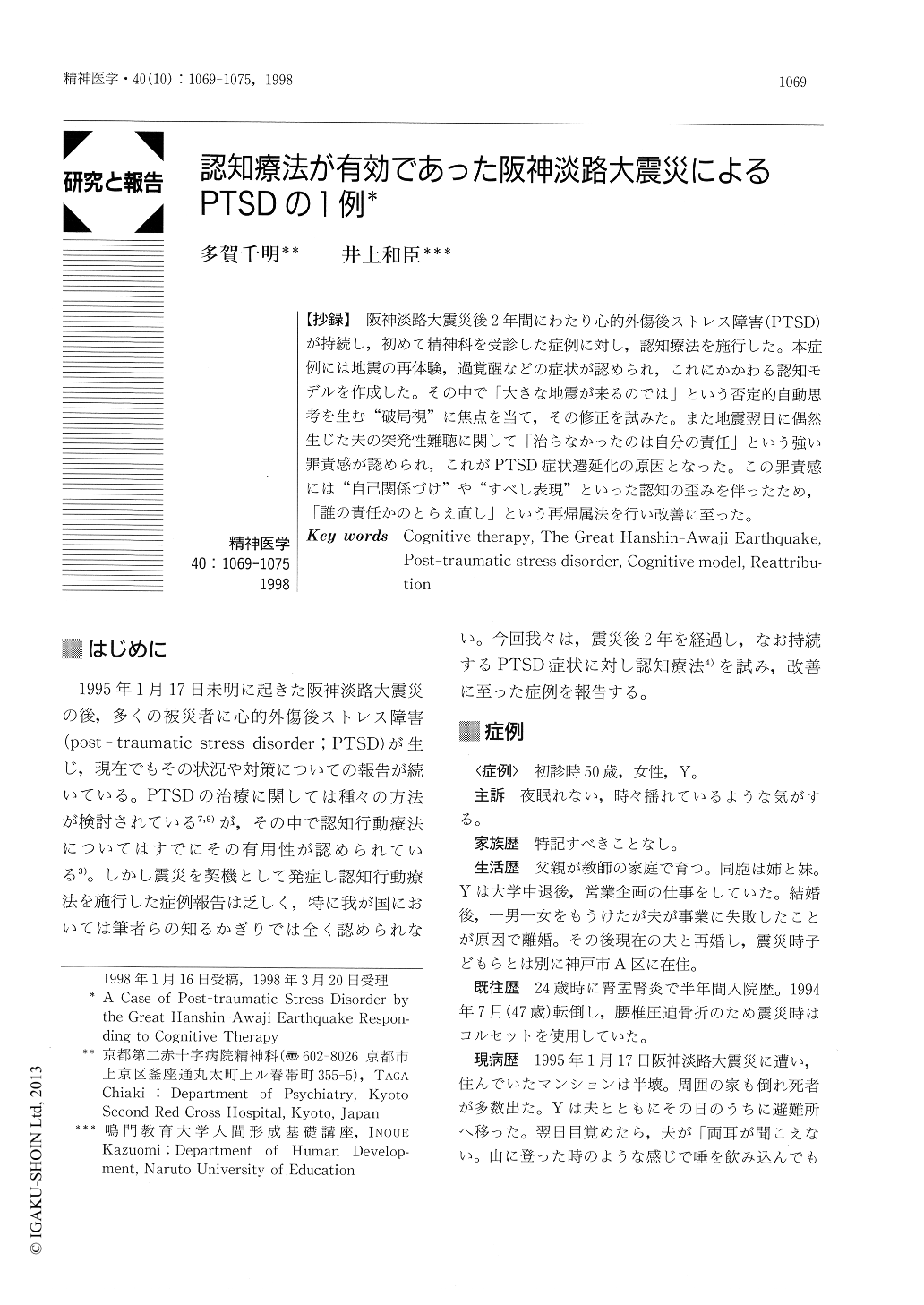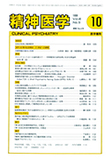Japanese
English
- 有料閲覧
- Abstract 文献概要
- 1ページ目 Look Inside
【抄録】阪神淡路大震災後2年間にわたり心的外傷後ストレス障害(PTSD)が持続し,初めて精神科を受診した症例に対し,認知療法を施行した。本症例には地震の再体験,過覚醒などの症状が認められ,これにかかわる認知モデルを作成した。その中で「大きな地震が来るのでは」という否定的自動思考を生む“破局視”に焦点を当て,その修正を試みた。また地震翌日に偶然生じた夫の突発性難聴に関して「治らなかったのは自分の責任」という強い罪責感が認められ,これがPTSD症状遷延化の原因となった。この罪責感には“自己関係づけ”や“すべし表現”といった認知の歪みを伴ったため,「誰の責任かのとらえ直し」という再帰属法を行い改善に至った。
Cognitive therapy with a 50-year-old woman suffering from post-traumatic stress disorder (PTSD) for two years after the Great Hanshin-Awaji Earthquake was reported. She had persistent symptoms of reexperiencing the earthquake, increased arousal, and avoidance. In terms of cognitive aspects, she showed such cognitive distortions as catastrophizing, personalization, and “should” statements. A cognitive model of PTSD symptoms was developed to help her modify the catastrophic misinterpretation (“Another disastrous earthquake is coming”) of specific fear-provoking events. She also felt guilty about her husband's hearing disturbance which suddenly began on the day following the Earthquake. To ease this chronic feeling of guilt, her recurrent thoughts (“I should have told him to see a doctor on that day, ” “ I am responsible for his deafness.”) were challenged through the cognitive technique of reattribution, with favorable effect.

Copyright © 1998, Igaku-Shoin Ltd. All rights reserved.


